Theodore Lowe, Ap #867-859 Sit Rd, Azusa New York

Theodore Lowe, Ap #867-859 Sit Rd, Azusa New York
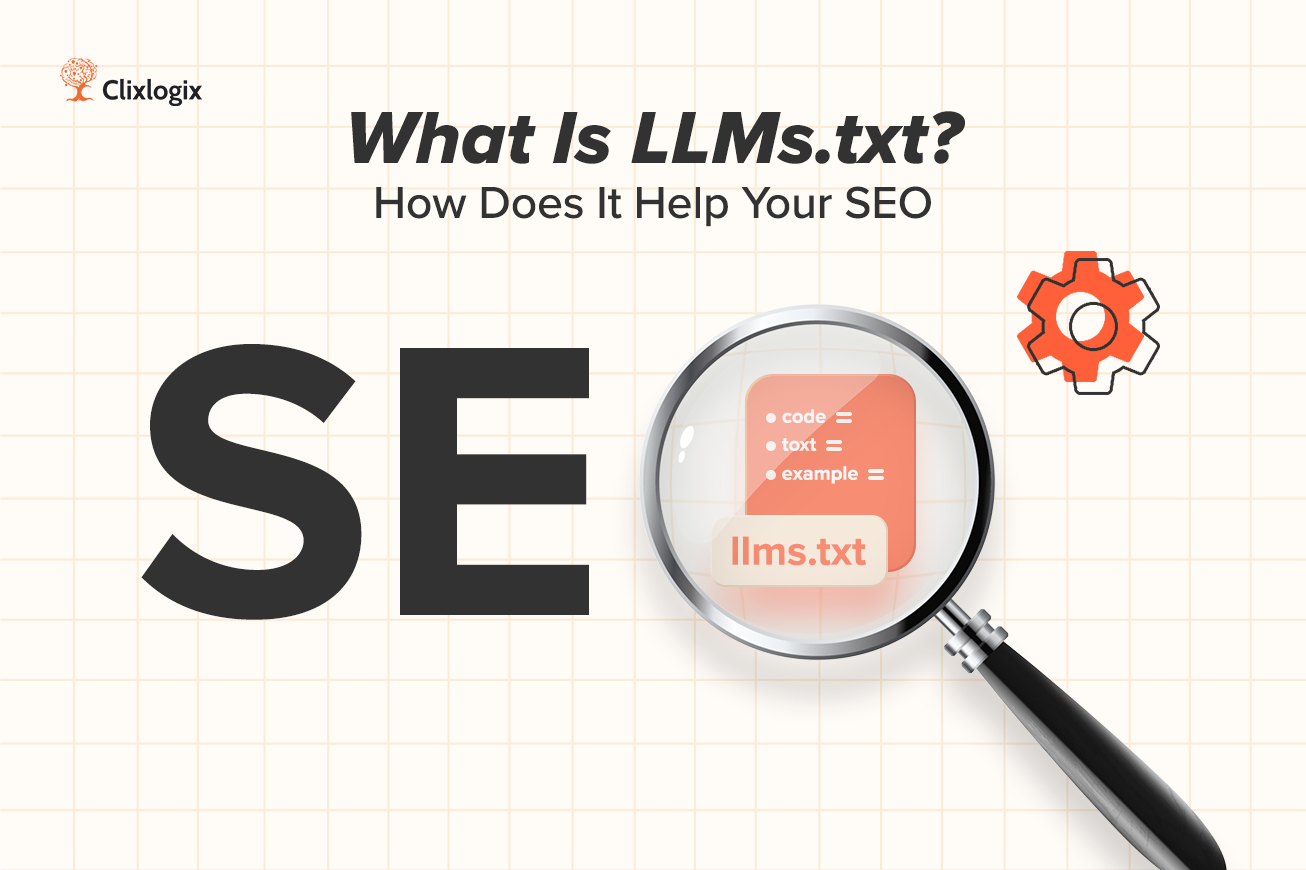
The hype, the file, and the marketer’s dilemma
Every few years, something new promises to “change SEO forever.”
In the early 2010s, it was AMP pages. Later, structured data became the magic switch.
Now, in 2025, it’s LLMs.txt, a small text file that’s being sold as the secret to better visibility in AI search engines.
The idea sounds tempting: drop a file in your site’s root directory, list your best pages, and help AI models “see” your content clearly.
As a marketer who’s worked through enough algorithm updates and AI launches, I get the curiosity. But I also know that curiosity can quickly turn into confusion, and right now, LLMs.txt sits right on that line.
So let’s talk about what it really is, who’s behind it, what Google’s own experts say, and what it actually means for those of us trying to build brands, not chase trends
In plain English, LLMs.txt is a proposed text (or Markdown) file that lives at the root of your site, something like:
https://yourdomain.com/llms.txtIt’s meant to act like a guidebook for AI models, telling them which pages you want them to read, summarize, or reference when generating answers.
The concept was introduced by Jeremy Howard, and the official spec on llmstxt.org explains how it should be structured. Think of it as a Markdown version of a sitemap.
Each section (H2) lists links to your most important content, with short notes about what each page contains.
As Search Engine Land put it, it’s “like a hand-crafted sitemap for AI tools, directing them to the content you most want them to attend to.”
That description captures the essence, it’s about curation, not control.
If you’ve watched how AI search (ChatGPT, Perplexity, Google’s AI Overview) is changing user discovery, it’s clear why this file became a talking point.
Every brand wants their content to show up when AI systems summarize answers.
So when the idea of “Generative Engine Optimization (GEO) or AI-SEO” came along, tools and plugins jumped at it. Some CMS platforms even started auto-generating LLMs.txt files, claiming it “improves visibility in AI-powered results.”
The catch? There’s no evidence that any AI system, not OpenAI, Anthropic, or Google, actually uses it.
Even Ahrefs was clear: “As of now, no major AI provider uses llms.txt.”
It’s a proposed standard, not an adopted one.
When confusion meets SEO, Reddit is usually the first place chaos surfaces.
In a Reddit thread where an SEO asked why SEMrush flagged their missing /llms.txt, Google’s John Mueller jumped in with a calm dose of truth:
“Good catch! Especially in SEO, it’s important to catch misleading & bad information early, before you invest time into doing something unnecessary. Question everything.”
On another post he added:
“AFAIK none of the AI services have said they’re using LLMs.txt (and you can tell when you look at your server logs that they don’t even check for it). To me, it’s comparable to the keywords meta tag, this is what a site owner claims their site is about. At that point, why not just check the site directly?”
That line hit home for many of us who’ve seen these cycles before. In simpler terms, don’t spend hours optimizing something AI systems don’t even look at yet.
There’s also a technical, and ethical, reason many AI platforms haven’t adopted LLMs.txt.
A 2024 research paper titled Adversarial Search Engine Optimization for Large Language Models warned of what they called Preference Manipulation Attacks, where someone could trick AI models into promoting their content unfairly.
The researchers demonstrated that with such manipulation, an attacker could make a product “2.5× more likely to be recommended by an LLM.”
Now, imagine if AI systems started blindly trusting a text file anyone could edit. It’d become a new form of SEO spam overnight.
That’s the risk: if there’s a loophole, someone will exploit it.
For AI companies, the safest option is to stick with real, on-page content, what users actually see, instead of a separate “curated” file that might mislead.
Even though the standard isn’t official, SEO plugins rushed to include it because users asked.
The team at Squirrly SEO admitted: “We brought it because our users requested it, but there’s zero proof that it helps with being promoted by AI search engines.”
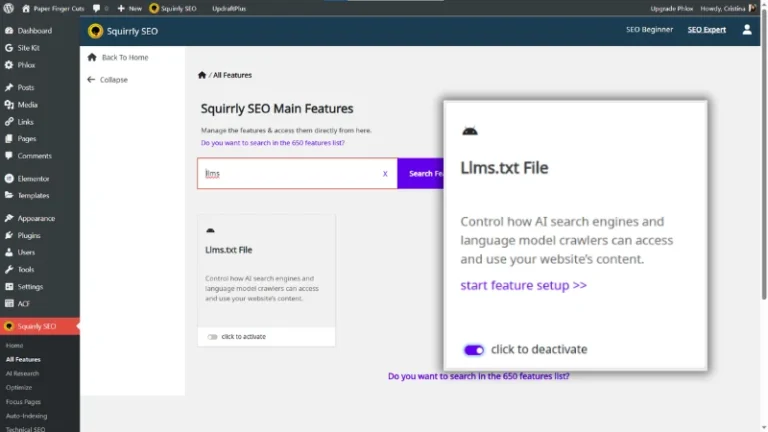
Yoast SEO took a more cautious stance, saying it “could help AI tools better understand your content.”
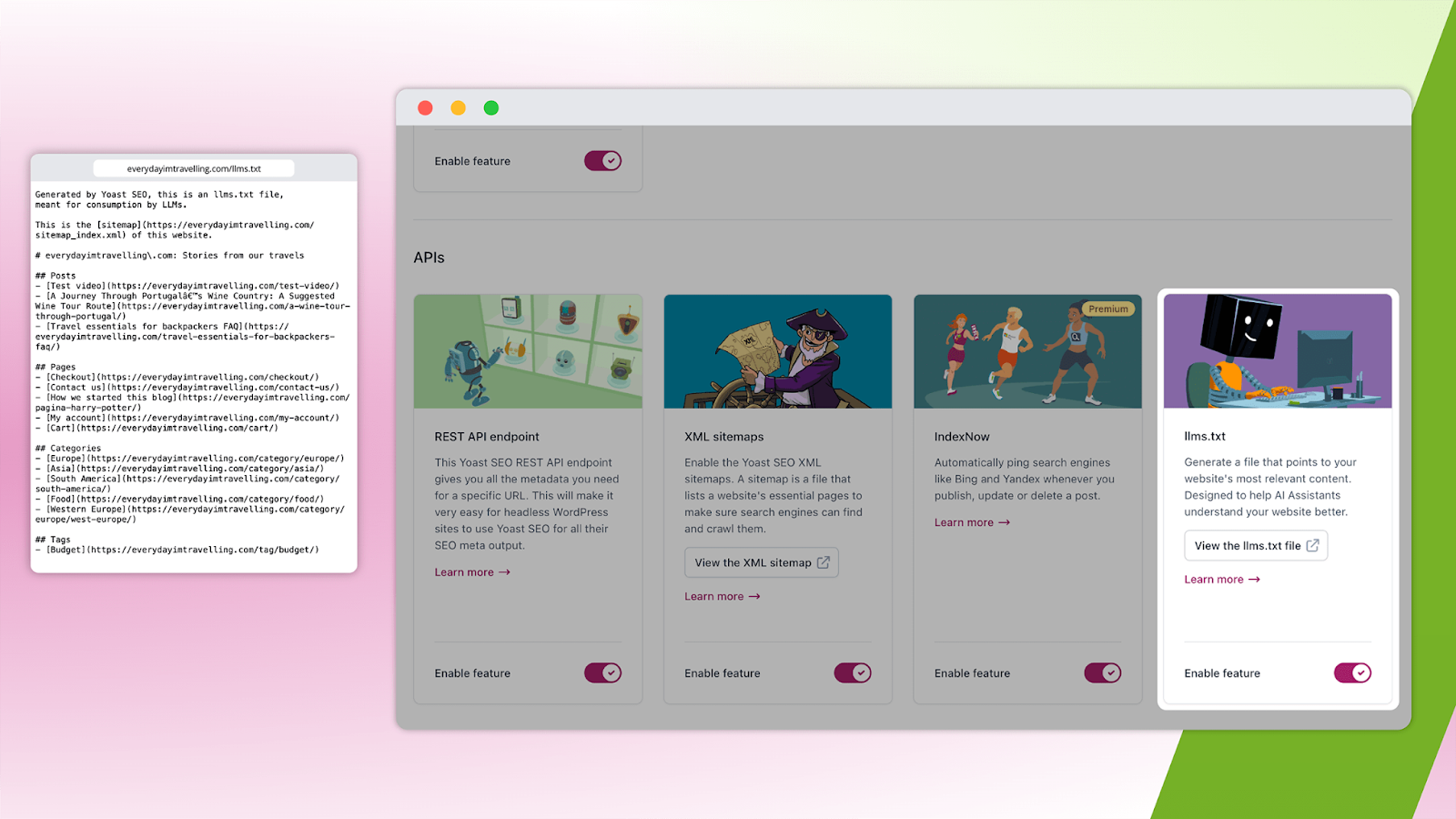
Rank Math, on the other hand, went all in, suggesting AI chatbots “refer to the curated version you’ve given them,” which experts later criticized as overstating the truth.
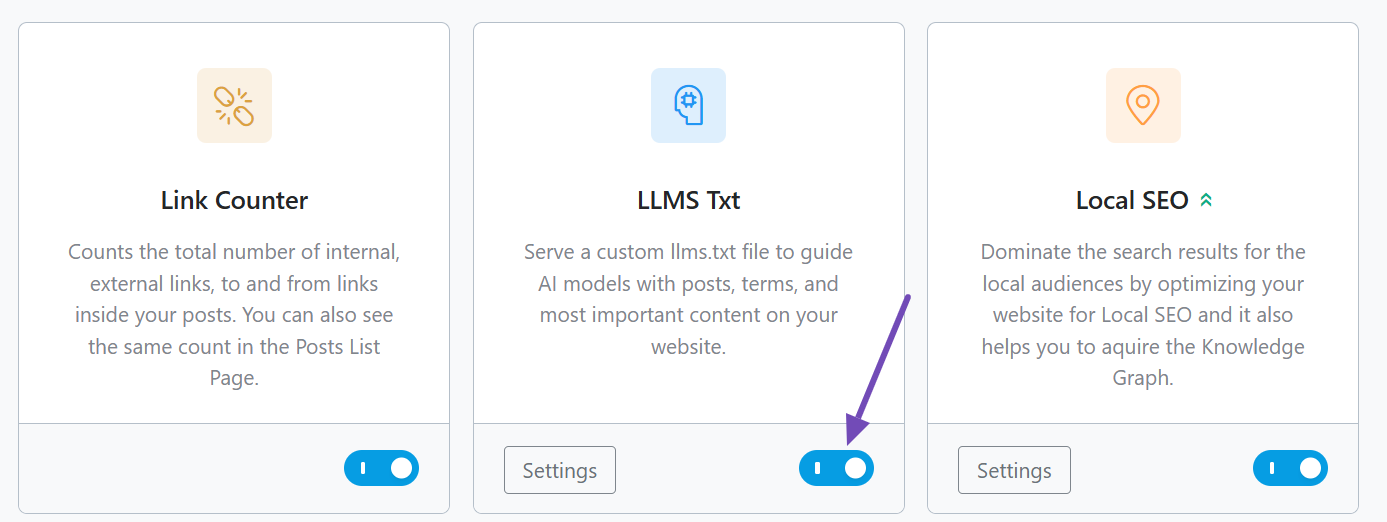
This inconsistency added to the confusion, creating what Search Engine Journal called “a self-reinforcing loop of misunderstanding.”
Everyone’s talking about LLMs.txt because everyone else is, not because it’s delivering results.
Marketers who’ve tried it haven’t seen measurable change.
Some who added LLMs.txt checked their server logs for signs of AI crawlers accessing it, nothing.
Even the directory at llmstxt.org, which tracks websites that have added the file, shows adoption, but not actual effect.
In short: you can add it, but so far, no AI system is listening.
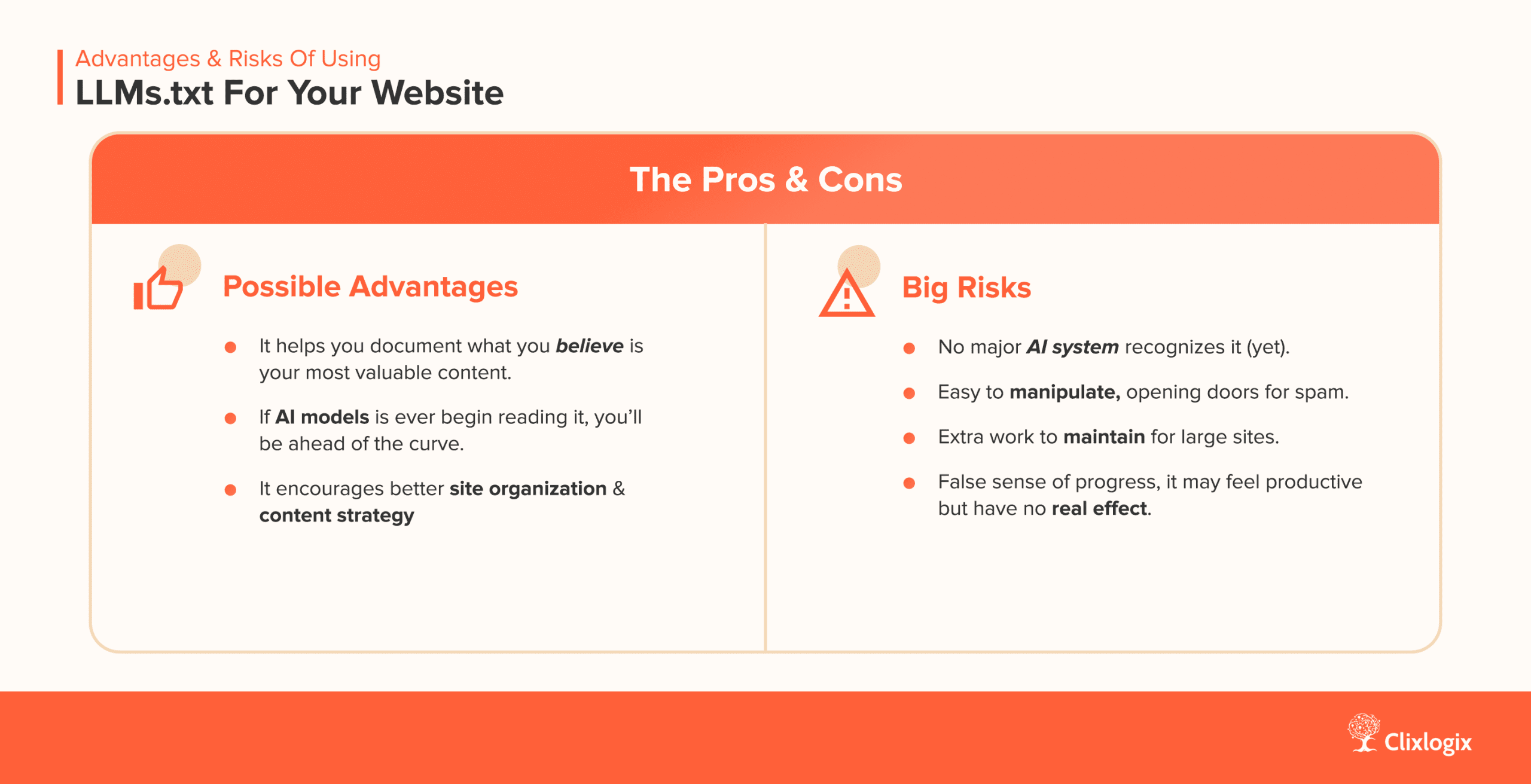
If you’re still curious to experiment, here’s what a basic file looks like:
# MySiteName
> A resource hub sharing marketing guides, SEO best practices, and case studies.
## Tutorials
- https://mysite.com/marketing-101.md : Intro tutorials for beginners
- https://mysite.com/advanced-seo-guide.md : Detailed SEO strategies
## Case Studies
- https://mysite.com/case-study/domain-growth.md
- https://mysite.com/case-study/ai-content-performance.md
## Optional
- https://mysite.com/blog : General articles (lower priority)
It’s simple, human-readable, and easy to test, just don’t expect it to change your AI visibility overnight.
I’ve tested enough marketing “quick wins” to know how they usually end: loud beginnings, quiet endings.
Right now, LLMs.txt is a conversation starter, not a visibility booster.
If you manage large, content-heavy sites, there’s no harm in experimenting, just keep it low priority.
For most marketers, your time is better spent improving on-page content, user signals, and brand mentions (all of which AI systems actually read).
To quote John Mueller again, “Question everything.”
That’s how we separate progress from noise.
In marketing, timing matters as much as tactics.
LLMs.txt might evolve into something real, or it might join the long list of “SEO ideas that never took off.”
Until AI platforms officially recognize it, it’s better treated as an experiment, not a strategy.
And that’s okay.
Sometimes the smartest move isn’t to jump first, it’s to watch, learn, and act when the dust settles.
Abdullah Habib is a digital marketing specialist with expertise in SEO, content marketing, social media, digital advertising, and data analysis. He excels in creating strategic, data-driven campaigns that boost organic traffic, enhance brand visibility, and drive growth for clients.